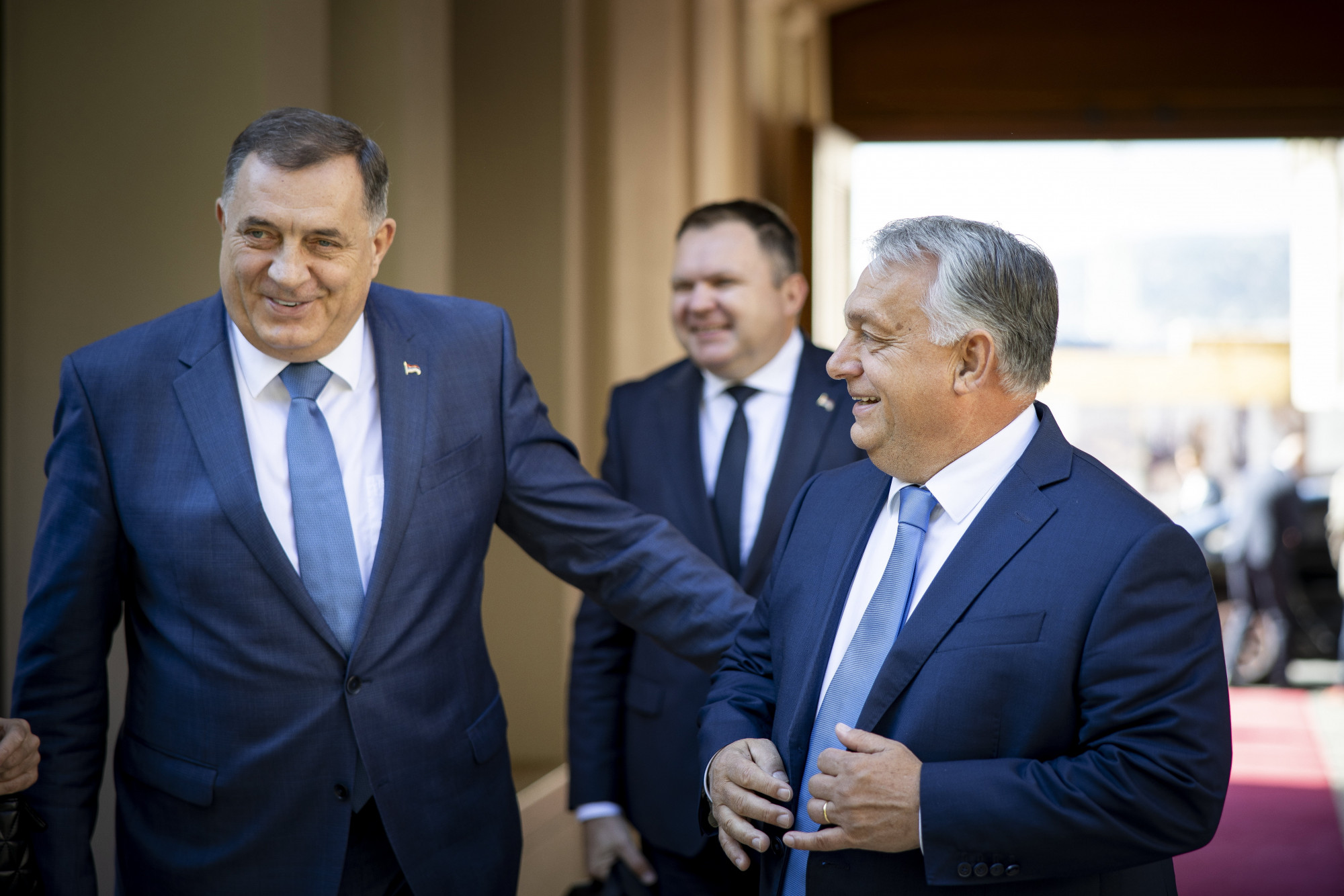Orban receives same state honour from Bosnian Serbs as Putin
- Stay updated on the latest news from Hungary by signing up for the free InsightHungary newsletter
Hungarian PM receives the same award as Vladimir Putin
In commemoration of the Day of the Republic of Srpska Milorad Dodik, the head of the entity, presented honors upon individuals who have left an indelible mark on the republic's life. Among the awardees was Hungary's far-right Prime Minister Viktor Orbán, who was notably absent from the ceremony, vijesti.ba reports.
In his speech, Dodik expressed pride in remembering those who have contributed to the existence and survival of Republika Srpska on their National Day. He stated, "My colleagues and I have been closely monitoring the activities of many noteworthy individuals, and we have chosen to confer medals upon those who have made a lasting contribution. One such person is Hungarian Prime Minister Viktor Orbán, who expressed delight at receiving the award and has conveyed his intention to accept it in February." Dodik expressed gratitude towards Orbán, highlighting that the Hungarian PM views Republika Srpska as a "genuine political actor". The last recipient of this honor was Russian President Vladimir Putin,
Report exposes Orbán government's influence in spreading pro-Russian disinformation among Hungarian minorities
A recent investigation conducted by the Budapest-based think-tank Political Capital shows the extent of the Orbán government's efforts to spread pro-Russian disinformation within Hungarian minority communities abroad. The analysis, which focused on Hungarian-language local media outlets in Slovakia, Ukraine, Romania, and Serbia, reveals a concerning transformation of the legitimate representation of Hungarian minority interests into the exploitation of these communities for partisan gain, exporting what is described as 'illiberal' values and pro-Russian narratives.
According to the report, the Orbán government reportedly invested millions of euros to establish a pro-Fidesz media network in these countries, collaborating closely with local allies. Political Capital's analysis suggests that Hungarian minority communities, particularly those dominated by Orbán-influenced minority media outlets and with limited exposure to majority-language media, are most vulnerable to this orchestrated disinformation campaign.
The report identifies the Hungarian diaspora in Serbia as particularly susceptible to the influence of pro-Russian narratives. The implications of this strategic information warfare raise concerns about the potential erosion of the integrity of information sources and the manipulation of public discourse among Hungarian minorities living in these countries.
Average teacher wage rise after EU guarantee has been received
A written guarantee has been received from the European Commission, to which the Hungarian government has linked the pay rise for teachers, nursery school teachers, and vocational teachers. From January 1, public education workers will receive an average pay rise of 32.2 percent - to compensate for the entry into force of the status law, Telex reports.
According to Gergely Gulyás, Minister of the Prime Minister's Office, another increase may come next year, with teachers' salaries being raised in two stages to eighty percent of the average salary of graduates.
Orbán governments have barely increased the salaries of education workers in the last decade, leaving them far behind other sectors and significantly inflated. For a very long time before last year's agreement, the government had refused to make any real progress on teachers' pay and expected the EU to provide the funds.
Majority of young Hungarians fear orbán's policies could pave the way for 'Huxit', survey shows
A recent survey conducted by IDEA Institute in December reveals that over half of young people under the age of 30 in Hungary (54%) harbor concerns that Prime Minister Orbán's policies might ultimately result in Hungary exiting the European Union, a scenario colloquially referred to as 'Huxit.' Notably, women express a higher degree of apprehension about this potential outcome compared to their male counterparts.
The survey findings indicate that among the broader adult population, 44% believe there is a risk that Orbán's policies could set Hungary on a path toward leaving the EU. Meanwhile, 39% of respondents do not perceive this as a realistic possibility. These results underscore a notable generational divide, with mainly young Hungarians expressing skepticism about the compatibility of Orbán's governance with Hungary's continued EU membership. The concerns voiced by the youth suggest a growing unease with the political direction taken by the Orbán government and its potential implications for Hungary's standing within the European Union.


